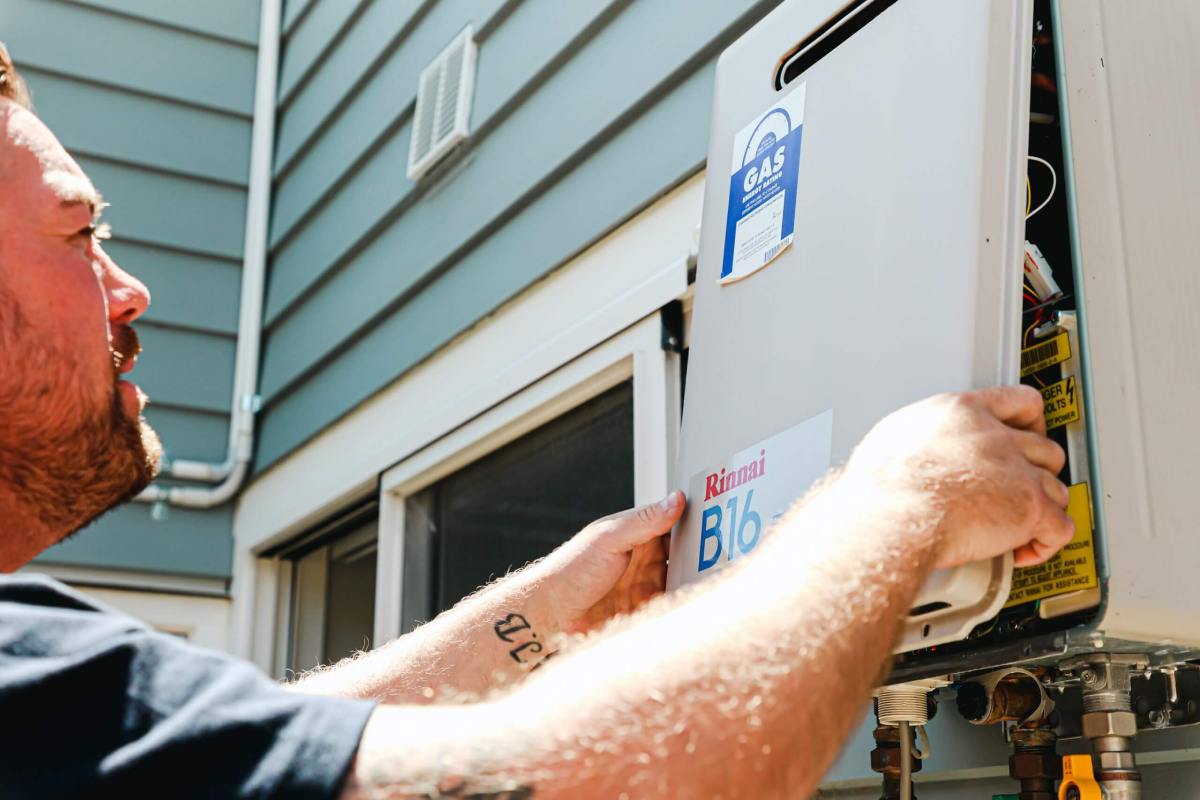Hot water systems are essential to any home, and their unexpected breakdowns can be a major inconvenience. As a homeowner, it’s crucial to have an idea of how long hot water systems tend to last. That way, you know when and what to check for to avoid costly repairs and unforeseen downtimes.
In this blog, we’ll take a closer look at the different types of hot water systems, their standard lifespans, and how you can improve their longevity.
Types of Hot Water Systems
There are two main types of hot water systems, which can deliver one of four types of hot water services. It sounds a little confusing, so let’s start with the types first.
A hot water system can either be instant (also known as tankless, instantaneous, or continuous flow) or storage (also called a tank water heater). These two hot water systems can run on any of the following four services:
- Electric: An electric hot water system uses an electric heating element to heat water. It’s less expensive than other water heaters but is less energy efficient, resulting in higher electricity bills.
- Gas: A gas hot water system uses a gas burner to heat water. Although it’s energy-efficient, installation costs are higher, as it requires a gas supply.
- Heat Pump: Heat pump hot water systems use electricity to transfer heat from the surrounding air to the water. Installation is also expensive, but power costs are usually lower compared to electric heaters.
- Solar: Considered the most energy-efficient of all types of hot water systems, a solar hot water system uses solar panels to heat water. It does not consume electricity but requires a good amount of sunlight to function efficiently.
The hot water systems above can last around 10-15 years, with the exception of solar, which, with proper care and maintenance, can last anywhere from 15 to 20 years.
What Affects Hot Water System Lifespan?
Hot water systems generally have a long useful life, but some aspects directly affect their longevity. As with any product, the number one factor that significantly impacts a hot water system’s lifespan is its quality. In other words, you get what you pay for.
High-quality, well-made systems can last for over a decade. Meanwhile, cheaper ones may require replacement because of corrosion, which is the leading cause of issues with the system. Since this is the case, the material of the tank is an important consideration. Here’s a rough guide to help you out:
- Tanks lined with glass or enamel will need a replacement in about 5 to 10 years.
- Stainless steel can offer anywhere from eight to 12 years.
- Low-pressure gravity-fed copper tanks can last for 20-25 years (or more).
- Heat pumps can give you 10 years of service or more with adequate care.
Of course, the numbers above are conservative. Some models, especially the expensive brands, can provide hot water for at least 15 years. Instant or tankless systems generally last longer, offering up to 20 years of continuous service.
Another factor affecting your system’s lifespan is the frequency of usage. Heavy, everyday use causes more strain. Although the materials in the system can withstand significant temperature changes, these machines always have a limit on what they can handle. This factor, unfortunately, is something beyond your control.
Finally, water quality is one factor that many users don’t think much about. Poor water quality or “hard water” requires more intensive processing, which can quickly lead to corrosion. As a result, your water tank’s lifespan reduces greatly, especially if hard water passes through it day in and day out.
It is always a good idea to check the system’s warranty to ensure you get the sufficient length for the type you plan to purchase.


